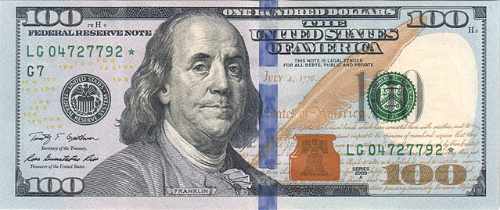



Perspective On The Loss Of The Dollar’s Reserve Status
by David Reavill
The World handed us a credit card. We maxed it out. Now we must go back to living within our means.
By now, you’ve undoubtedly heard the Dollar is likely losing its status as the World’s Reserve Currency. That may have already occurred. But here in the US, the shouting has just begun. Almost every financial writer tells us that: “the world as we know it is coming to an end.” Our lives will never be the same. Our standard of living will plummet.”
Much of those sentiments are true if slightly overdone. As a country, the United States will have to make some significant adjustments in how we operate financially. That’s the bad news, the good news is that we can do it, but it will take firm leadership on Wall Street and Washington and a willingness by the average American to make sacrifices. While I do not doubt that everyday Americans will be able to adjust their lives accordingly, you have already adapted your lifestyle throughout the Pandemic. Will the country’s financial and political elites rise to the occasion?
First, we must recognize that the Dollar’s Reserve Status concerns international trade and finance. Reserve Status, per se, does not affect how we buy and sell things hear at home. If I purchase an apple from farmer John down the street, the Dollars Reserve Status does not affect that transaction.
There is a critical distinction to make. Americans buying goods and services from Americans is not affected by the Dollars value in international markets. We don’t check in with the FOREX Exchange to see if the price of that “apple” has gone up or down. The fact that American domestic markets don’t have to be part of the Global Economy underscores a way out of this mess.
The Reserve Status comes into play when Farmer John purchases some gasoline (or diesel) to put in the tractor. At the margin, the price of our gasoline is set in the international markets.
On a technical aside, to make a long story short, we purchase some specific “blends” of gasoline from over sea’s refiners. Because they can produce that blend more efficiently and cheaper. It’s how overseas producers have gained pricing power over portions of our petroleum markets. And it’s why the American gas pump reflects a new cost when Saudi Arabia raises their price (or reduces their Production like now).
I’m sure that Farmer John has no interest in helping Saudi Arabia. Still, this country’s financial and political leaders have been pushing this trend of “Globalism” for a couple of generations. So, it’s through this “back door” that international finance has infiltrated almost all of our domestic markets. Wall Street gets rich by moving around the payments for that Saudi Oil through various international banks and brokers. And Washington gets to wield their influence far and wide by granting “Most Favored Nation Status” and other perks to their favorite countries.
Combine this with Washington’s penchant for creating massive amounts of debt, and we begin to see the critical importance the Dollar as Reserve has for our nation’s elites. Banks and brokers profit from cross-border financing, while politicians can exert tremendous influence on those countries that “do business” with us.
For nearly 75 years, America has been at the heart and center of international finance. Today, that’s going away. While much of Europe, Canada, Australia, and Japan will likely remain with the American-centric system, it’s apparent that the BRICS Nations (Brazil, Russia, India, China, and South Africa) have moved in a different direction. Moreover, much of the Middle East may join the BRICS in forming a new financial coalition.
Goodbye, Dollar Reserve.
Assuming this continues to be how things unfold, the United States will have a challenging adjustment period. Convenient opportunities for foreign trade will begin to disappear. The days of profiting from the “spread” are nearing an end for US International brokers. Instead, half the World may no longer want to do business with America.
It’s particularly instructive to watch the current actions of Saudi Arabia. They are considered one of our best allies in that part of the World. MBS (Mohammed Bin Salman) has gone out of his way to rebuff our current President. First, when he refused to lower the price of Oil last year at the President’s request, he is currently the chief advocate for reducing OPEC+ Production. A move that he knows will revive US Inflation.
It is a particularly bitter pill for this Administration. After all, it points to the central flaw in globalist thinking. Not all foreign “partners” have our best interests at heart. When push comes to shove, Saudi Arabia will always choose the best path for the Kingdom, not for the United States. What’s worse, as the Dollar loses Reserve Status, US leverage over the House of Saud is waning.
America’s big spending habits will need to adjust to this new reality. The role of Wall Street and Washington will inevitably decline. Instead, if we are to survive, America will need to return to the America of old. Our economy will need to get back in balance.
We will no longer be able to afford to use other countries to make a majority of the items we use. “Made in America” will need to come back in fashion. Today we are an economy where Production represents only one-quarter of our nation’s output. That will need to come in balance, closer to 50:50 Production and consumption.
Credit reform will need to be part of this New America. The loss of the Dollar’s Reserve Status will mean that borrowing will become more expensive and less available. We will need to bring our spending and income into balance also. That’s not a bad thing. How we are operating today is not sustainable.
The best analogy to our current situation is that we’ve been through a spending binge. The World handed us the credit card (US Dollars as Reserve). And we blew through all the limits. Now is the time to pay for all that spending.
It will be a time of belt-tightening and austerity. But it’s nothing that this nation hasn’t faced before. We’ve been through inflation, recession, and even depression. Each time, we’ve been able to get back to economic basics, reduce spending, rebuild our manufacturing and industrial base, and work our way back to prosperity.
It’s time we did it again.
